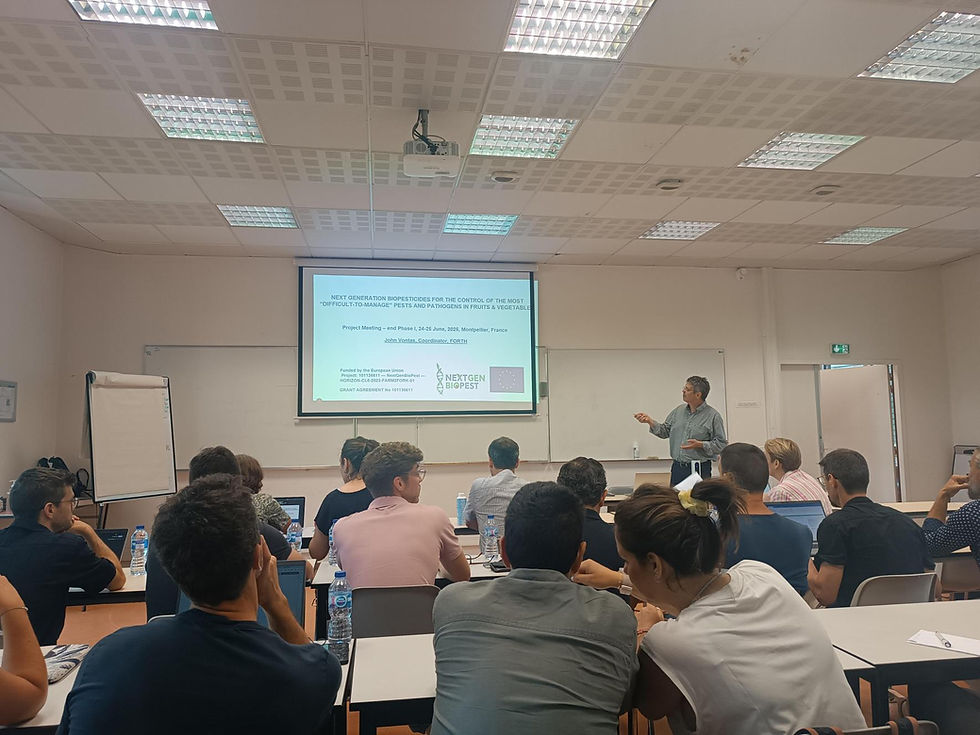NextGenBioPest at Insecticide Resistance Workshop!
- Angeliki Milioti
- Apr 29, 2025
- 1 min read
On 28 April 2025, researchers from the University of Exeter participated in a focused workshop on insecticide resistance, hosted in collaboration with the Institute of Vegetables and Flowers (IVF) at the Chinese Academy of Agricultural Sciences (CAAS) in Beijing.
The event provided a platform for presenting and discussing the latest research connected to the NextGenBioPest project, highlighting innovative approaches to understanding and managing insecticide resistance in agricultural pests. Scientists from both institutions exchanged findings, methodologies, and insights, fostering deeper international cooperation in addressing one of the most pressing challenges in sustainable crop protection.
The workshop marked an important step in strengthening the partnership between the University of Exeter and CAAS, enabling the development of joint strategies to mitigate resistance and support global food security initiatives.


